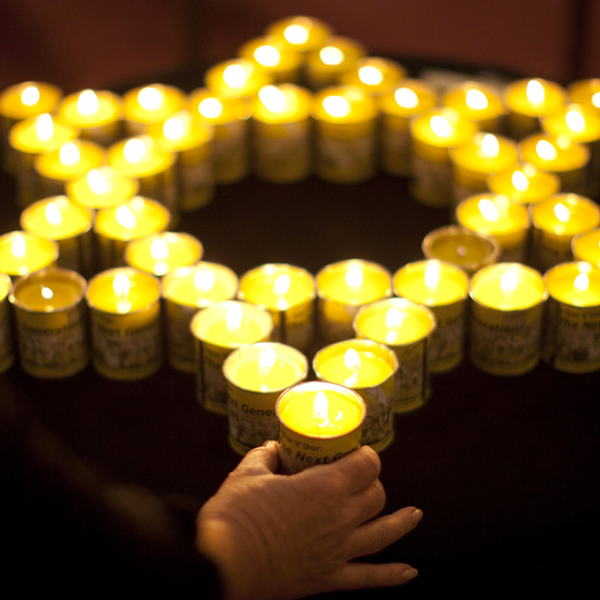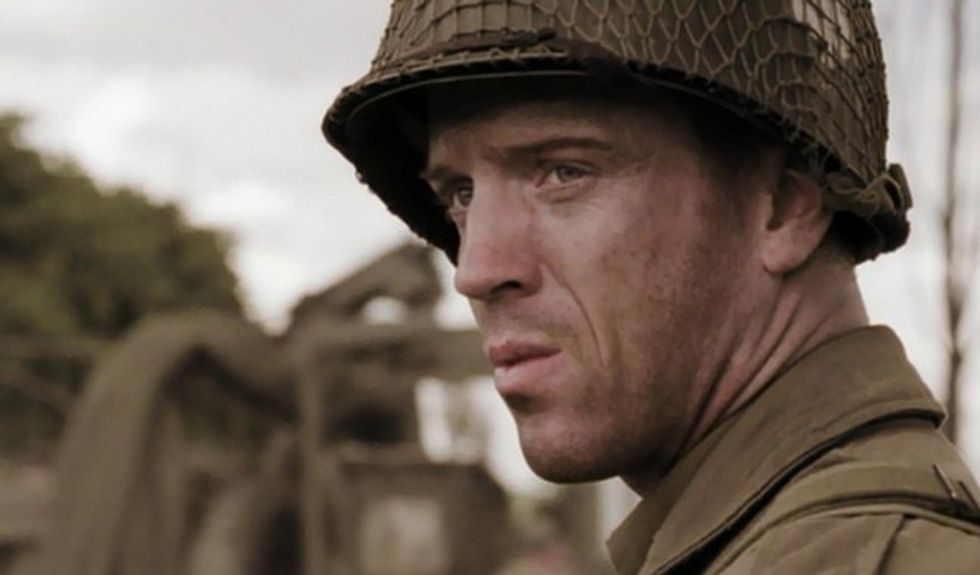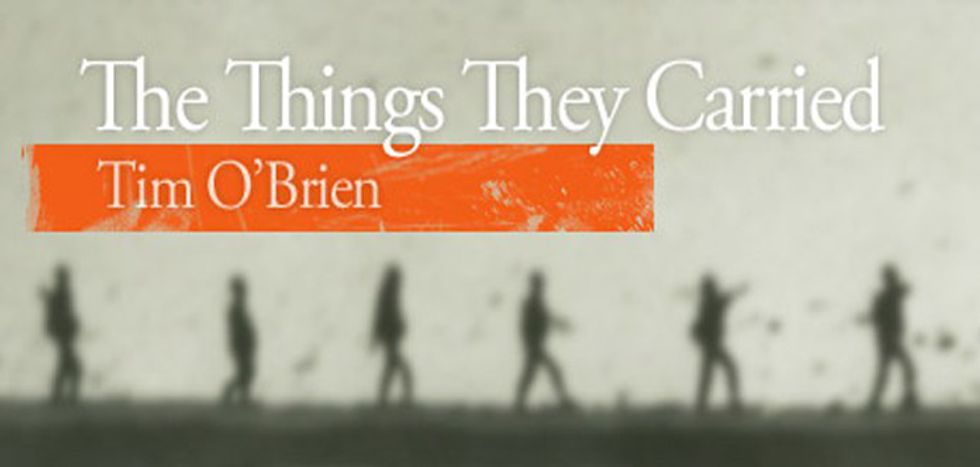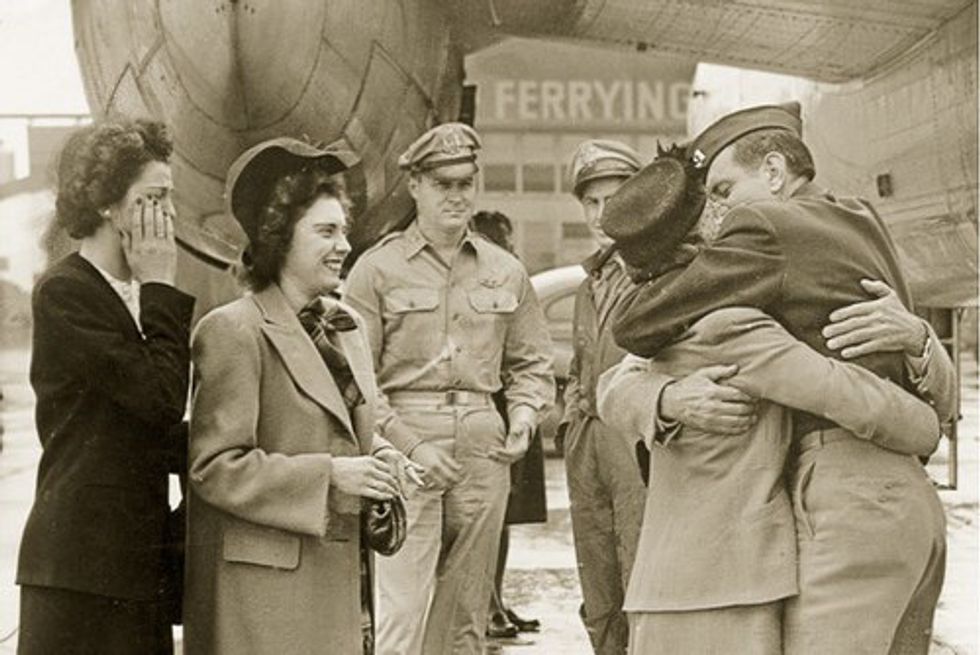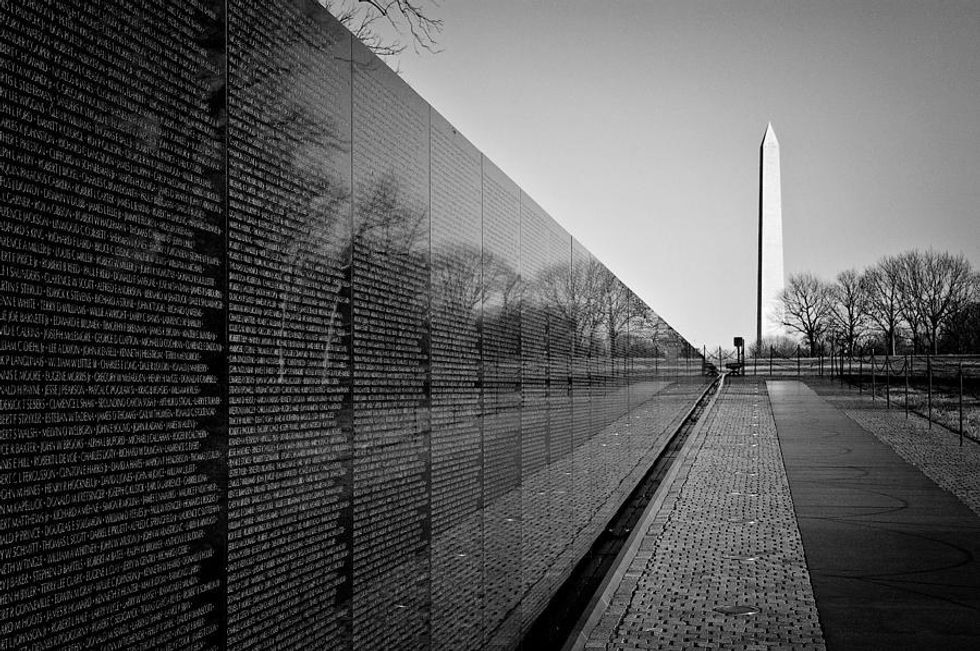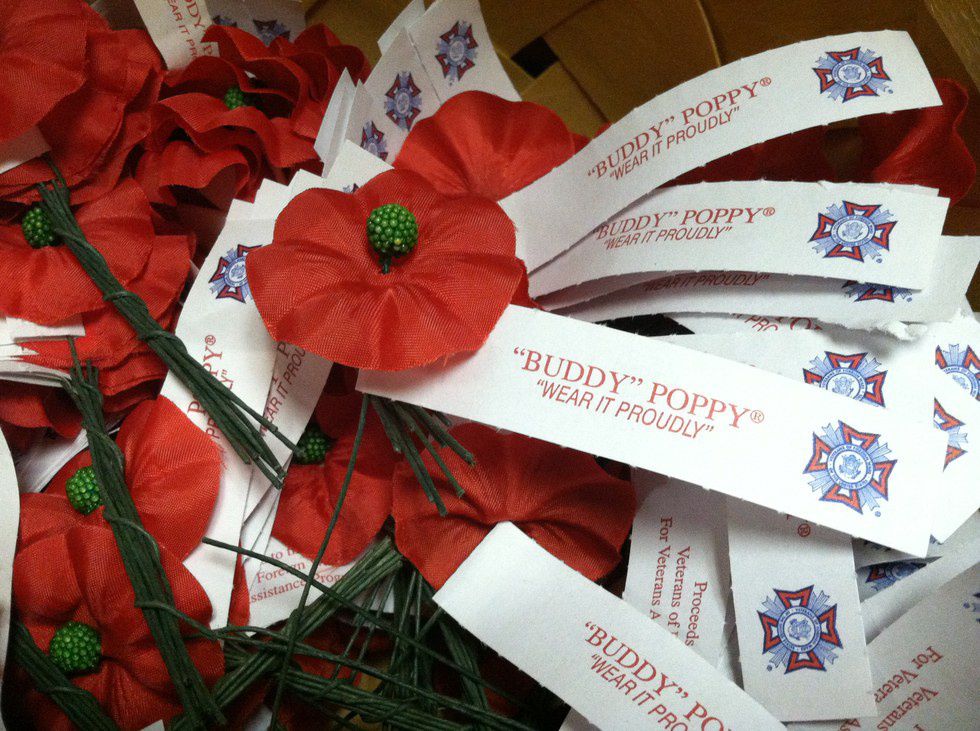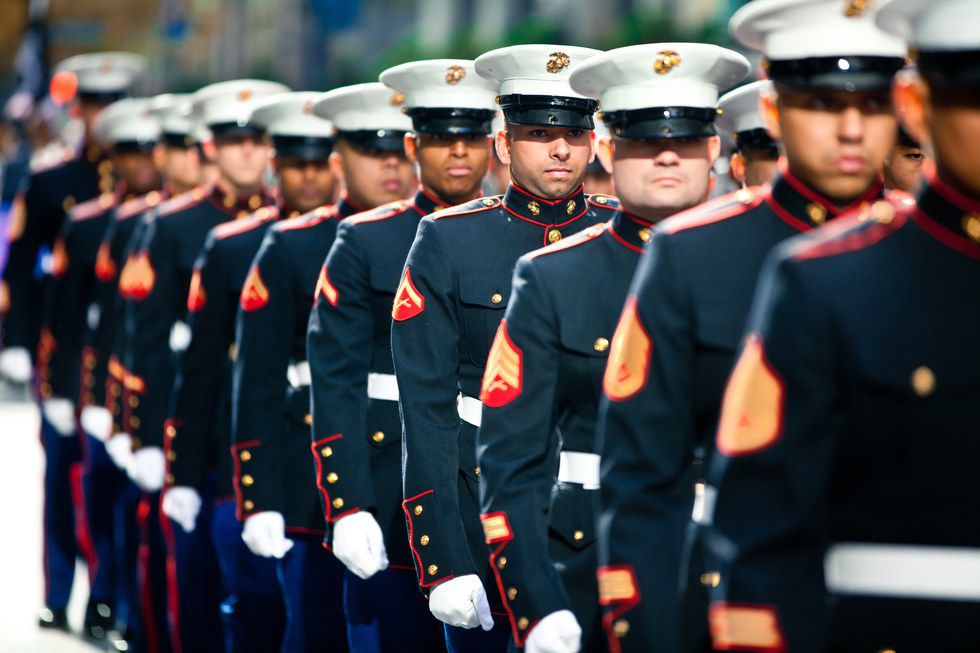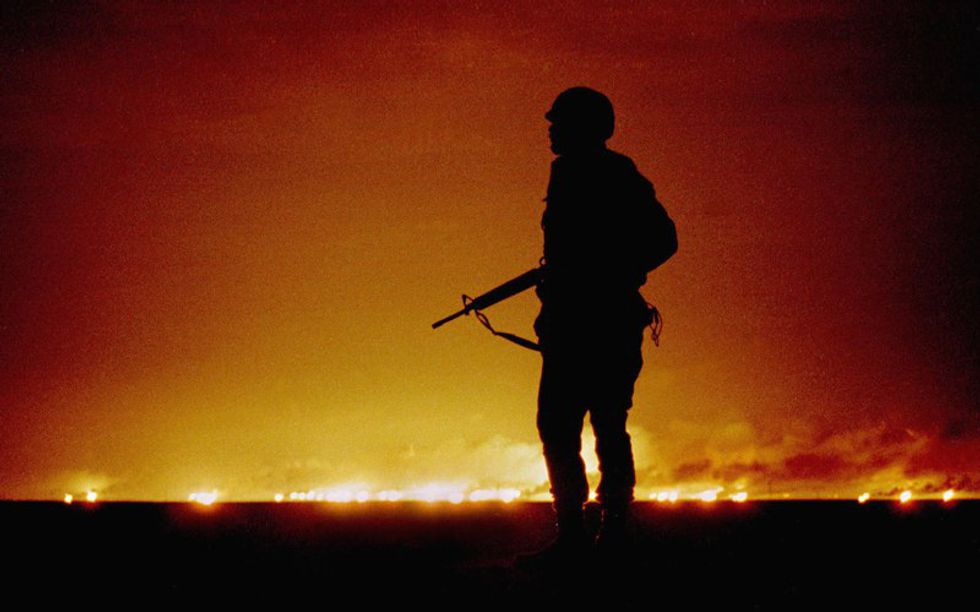There's a lot of controversy surrounding war and the atrocities associated with it. However, through my studies, I've been able to dissect the complexities of war and I can honestly say that soldiers are some of the most brave and honorable people in the world. Through all that they endure, all that they suffer and all that they survive (or don't survive), it seems that they deserve to be recognized more than just twice a year, on Memorial Day and Veterans Day. There are many ways in which people outside of the military experience can take time to appreciate, or at least learn about, the sacrifices and hardships that are made by soldiers on a daily basis during the duration of war.
1. Watch "Band of Brothers."
Although I imagine the book is incredibly powerful, my only experience is with the HBO mini-series. The characters are very well developed, the stories are real and at their core, the soldiers are all relatable and human. Watching a series like this allows for a non-combatant to realize the full visual extent of war. It takes place during World War II and over the span of 10 hour-long episodes, the viewer really gets to know many of the characters. In addition, the loss of some of these characters is devastating, even when expected. It truly allows for one to immerse him or herself into the daily life of a World War II soldier without the mental, physical and emotional tolls.
2. Read "The Things They Carried" by Tim O'Brien.
This book allows for a true appreciation of the difference between a real war story and a true war story (it will make more sense when you read it). It's a combination of short stories with titles like "The Things They Carried," as well. If reading long works isn't your thing, then I highly recommend reading just the short story within. It appears to be nothing more than basic cataloging, but it gives a really accurate portrayal of the literal objects that soldiers are responsible for carrying. It gives the reader insight into just how physically heavy the baggage of the soldiers are, let alone the emotional baggage. O'Brien says, "I want you to feel what I felt. I want you to know why story-truth is truer sometimes than happening-truth.” The work is powerful and an easy enough read.
3. Read "Unbroken" by Laura Hillenbrand.
For my regular readers, you know that I've only cried at one movie. However, I was damn near close to crying at a book: "Unbroken." It's the incredibly moving and true story of Louis Zamperini, the son of Italian immigrants. He turned his life around after a rocky childhood, became an athlete then became a survivor. Zamperini was a nationally-ranked and Olympic-qualifying track athlete before suffering through three prisoner of war camps, as well as over 40 days on a raft after his plane fell from the sky. His story is truly unbelievable, and even more unbelievable is what he decided to do after the war. Zamperini, who passed away two years ago, did amazing wonders with his life. This book, telling the story of his life, is one that brings a profound sense of appreciation for any soldier that had to suffer the detriments of war, whether or not they survived.
4. Visit any war memorial or museum.
The Korean War Memorial, Tomb of the Unknown Soldier, Milwaukee County War Memorial Center... the list goes on, and rightfully so. Even if it's as small as the memorial in Elizabeth, Illinois, there are military memorials all over the country. A lot of time and work has been put into their construction, which is merely a fraction of the work and time put in by the soldiers whose names are on them. Take a brief moment out of your day and reverently observe a moment of silence as you just witness the sheer awe that comes with being able to be a part of that history. In a culture in which media and constant stimulation drive individuals, these memorials are a humble reminder of why we have the luxuries that we do.
5. Have a "Buddy Poppy" for longer than a day.
Beginning in 1922, the Veterans of Foreign Wars began distributing the "Buddy Poppy" nationwide. Disabled veterans put these poppies together, and in return, the veterans receive pay. These are the veterans that can't find other employment. They are an allusion to the poem "In Flander's Field" by John McCrae in which the speaker begins: "In Flander's Fields the poppies blow." The money donated for these poppies help disabled veterans, the children of fallen soldiers and help with rehabilitation for veterans across the country. Having these poppies present all year round, as opposed to just Memorial Day, reminds us all of the sacrifice made by so many.
6. Take the time to talk to a veteran.
Whether it be a family member, a friend, a neighbor, a janitor or a stranger you meet on a train, talk to them. They may not want to talk about their experience during war. However, just talking to them allows you to gain insight into a whole new perspective. Veterans have lived an entirely different life than most of us. Exposing more people and opening up the conversation allows for appreciation to be shown on a daily basis. It's really easy to get wrapped up in patriotism on a few days a year, but not creating caricatures out of veterans allows everyone to continue moving on with life without forgetting the incredible sacrifice.
7. Realize that, as non-combatants, we may never fully understand.
It's easy to point fingers, to assign blame and to say that we would make different choices. However, most of us are saying that from air-conditioned bedrooms on a well-lit, suburban street. We may never fully understand the tolls that war may take on an individual, we couldn't fully imagine being in the shoes of a soldier, we more than likely will never be there. That being said, there are those that do understand, but for those of us that don't, hold back judgement and don't criticize. War is a monstrous thing, and something that's nearly impossible to understand. Accept the fact that you may not understand, and continue living without judgement of the individuals that are put into that environment.
These aren't solutions, these aren't life-altering ideas nor are they completely unheard of. However, they're a jumping off point. There needs to be a first step, and I feel that these are all important to begin showing appreciating for fallen soldiers, as well as veterans. To say thank you twice a year is simply not enough.

